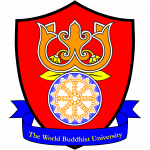Ajahn Brahm's Writings
Ajahn Brahm is the popular Buddhist teacher to a growing international audience of people keen to learn meditation and develop a deeper spiritual understanding. He is also the founding father of an emergent Australian forest tradition of Buddhist monasticism focused on being true to the original roots of the Buddha's Teaching of Dhamma and Vinaya.
-
The Basic Method of Meditation
-
Travelogue to the four jhanas.
-
Satipatthana: The Fourfold Focus of Mindfulness.
-
The Five Hindrances (Nivarana)
-
Using non-self to let go.
-
Deep insight.
-
Meditation: The Heart of Buddhism.
-
The quality of mindfulness.
-
Using variety to "freshen up" our meditation.
-
Joy at last to know there is no happiness in the world.
-
The bliss of letting go.
-
The ending of things - A discourse on "non-self".
-
Buddhism, The only real science.
-
What the Buddha said about eating meat.
-
On Making a Mistake.
-
Attachment.
-
The Meaning of Sangha.
-
In the Presence of Nibbana - Developing Faith in the Buddhist Path to Enlightenment.
-
Growth of Buddhism in the West.
-
A Forest Monk and a Zen Roshi.
-
Vinaya: Ownership and Administration of Monasteries.
-
Vinaya: Monks and Money.
-
Vinaya: The Four Disrobing Offences.
-
Vinaya: Wrong Livelihood.
-
Vinaya: Ordination of Women.
-
Vinaya: Monks and Women, Nuns and Men.
-
Vinaya: May a monk act as a doctor?
-
Vinaya: The Ordination Ceremony of a Monk.
-
Vinaya: What the Buddha said about eating meat.
-
Vinaya: The time and place for eating.
